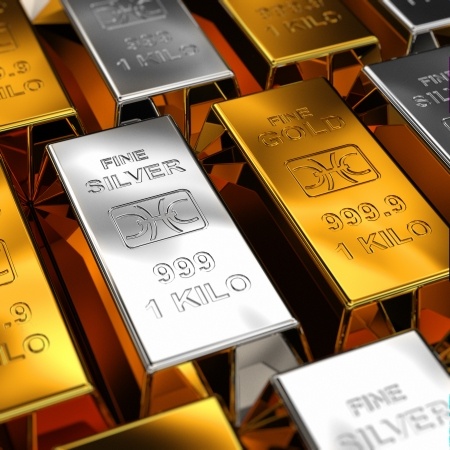In the early 1990s, the price of gold ranged from $25, and we saw it rise to about $450 an ounce. In fact, in one decade, we saw a difference of about $170, which was incredible. In fact, a move of even $40 to $50 in a single year was a huge gain.
Now, we sometimes see such movement in a single day. As of September 2005, we’ve seen gold on an incredible rise. It has gone from $450 an ounce to $1,800 an ounce in 2011 and now at around $1,650.
Most mainstream investors didn’t think much of the change in the first decade, but by 2005, gold was at an all-time high. So when it crossed the $1,000 mark in 2009, investors started taking note.
Gold, once only watched by central banks and gold miners, was now mainstream. In fact, gold can be bigger than many tech stocks. Many people are looking into gold IRAs for investments…here is a list of the best gold IRA companies if you are interested.
What’s Up with Silver?
Siver has also had a good run, and the price is up and may even have a long upward run than gold in the next few months and years.
How’s The Market for Each
Silver had a huge run in the early part of the century and went up from about $7 per troy ounce to about $35. When you look at the percentage, it is on an even bigger upward trend than gold.
Consider The Demand
Silver has many industrial and commercial uses. Traditionally, we used it in the film industry. Still, it continues to be used in technology and cell phone manufacturing, musical instrument making, jewelry, medical instruments, and many other areas.
Silver is used in electrical appliances and electronics because it has low resistivity and is used to convert solar power into electrical power. Thus there is a growing need for it in the solar energy process. It is also used for its antibacterial properties and as a means for water purification and food hygiene.
Uses for Gold
Gold does not have as many industrial uses. Of course, jewelry accounts for about two-thirds of the gold demand. It is also used in medical applications, but that is about it. So the question arises, at what point will the demand start to go down, simply because it is too expensive. After all, there comes a time when even luxury items become too expensive.
Financial Stress
Most investors see gold as an investment. They see gold as stability and a good purchasing option in an overly unstable climate. Gold has risen in value over the last decade, and the U.S. dollar keeps going down. This is because the U.S. government has had to inject so much money into the declining economy. And because countries like China hold trillions of U.S. bonds and too much money invested in dollars. So many investors swap their dollar investments for gold.
Gold is a preferred vehicle and is thought to be a protection against risk. However, precious metals like platinum, palladium, and silver are also on the rise because of the stress caused by the world’s financial issues. Gold may still appeal to investors as a haven to store capital. Still, silver is also becoming easier and more people are taking advantage of adding it to their investment portfolios.
The Ratio
Investors use a variety of different methods to estimate the trends. They use the price to earnings ratio to help them get a view of the estimated growth and the value of the metal compared to something else.
Many years ago, a gold dealer named Franklin Sanders was determined to work out the average gold price compared to silver. He took his research as far back as 1792 and found that gold was about 16 times more than silver. In the last 100 years, that ratio has been as high as 96, but today the gold-silver ratio is about 51.
Traders believe the financial ratio has a historical pattern, and at today’s gold price, the price of silver needs to rise to about $58 per ounce, almost double what it is not to return to the normal 27% ratio.
Investment Options
In the old days, to own silver or gold, you had to purchase it physically, and you can still do that. Silver bars weigh about 6.8 pounds, and you can store them in a safe. However, in physical shape, coins are the most common investment vehicle.
Exchange-Traded Funds
The ETF’s started in the 21st century and track prices of commodities like natural gas, crude oil, gold, and silver, among other things. If you have a stock brokerage account where you trade stocks, you can trade for silver in iShares Silver Trust or the ETFs Silver Trust, listed under SIVR. Buying and selling silver and gold gives you the option of buying when low and selling when high without actually holding the metal itself.
Another option is to purchase shares of a company that mines silver or gold. You can buy shares in companies like Silver Wheaton (SLW), and these companies rise as the price of metals rise.
Final Word
Gold and silver can be great investments, but they are also very volatile, so it is not an investment for people who don’t like risk. You can’t trade these products today, and there are large price swings that can be quite scary.
